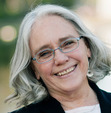Graham Robb and Middle Earth
I’m a mystery writer, so I read a lot of mysteries, most often books by friends or those recommended by friends or bloggers that I respect. Then there are the books I read for research for my own books. I am a stickler for getting the details right (I was an academic long before I became a writer, and sometimes I have to resist the urge to add footnotes).
[image error]
But there are a few books I read solely for pleasure. Most recently I read The Discovery of Middle Earth: Mapping the Lost World of the Celts, by Graham Robb. It was published in 2013, and I’ve had it sitting on my TBR pile for quite a long time. But I was going on vacation, and I knew I had some long flights ahead of me, and the book mysteriously sneaked to the top of the TBR pile. I started reading it before I left, and then I couldn’t put it down. I took it with me. I read it on the plane, and in Ireland, and still didn’t finish it until I was back home. It took that long not because the book itself was long, but because it was fascinating and I wanted to pay attention.
Forget the “Middle Earth” part of the title, because the book has nothing to do with Tolkien or hobbits. It’s about a period in historic time before writing existed, and the startling accuracy of laying out the known world—settlements, temples, even battlefields–without written communication.
I think many of us have assumed that a culture that does not possess writing is made up of ignorant people (I know I did). Robb in his book makes it abundantly clear that this was not true. He also points out that the Romans—who did have writing—managed to claim credit for a lot of things that predate their civilization, particularly in western Europe. But if you believe Robb’s elaborate and extremely well documented theories (and there are lots of maps in the book, and 54 pages of footnotes!), early cultures had a consistent philosophy of the connectedness of places within the world they knew, which they applied when they extended their reach and claimed new regions and built new towns. We’re not talking “A is to the west of B,” but the alignments between places, and even the orientation of significant buildings, are accurate to an extraordinary degree, based solely on the accumulated cultural knowledge and observations of the stars and planets. The physical evidence suggests a level of sophistication that few suspected existed.
I can’t say whether Robb’s theory is sound, because he has an encyclopedic knowledge of the evolution of place names and early settlements that most of us could never achieve. Many of the sites are lost, reduced to a pile or rubble, or a field with an ancient coin or two under the surface, and finding them requires an extraordinary attention to small details from unlikely sources. But put all the evidence together and the theory is persuasive.
The author went far beyond doing research in dusty libraries. He took himself to the sites on foot or on a bicycle and took his own measurements and had a wonderful time doing it—and making his story convincing his readers. This is a man I’d like to meet, and talk with him about lost history.
His book also answered a question that has nagged at me for years.
[image error]My favorite: the Drombeg Stone Circle in West Cork
I’ve loved prehistoric stone circles since I started reading about Stonehenge when I was in college. I’ve visited as many as possible in England and Ireland (and the aligned rows of stones in Carnac, in France). I’ve waded through fields of wheat and slogged through muck to visit the less well known circles, or what’s left of them. But I have never understood how the builders managed to line up their circles with the significant solar events. with striking accuracy. Robb shows clearly that this wisdom did not come out of nowhere: rather, it came from cultures that pre-date the builders of those circles. The populated world seems suddenly to have grown older—and wiser.
For me, Robb’s book represents a beautiful balance of conveying obscure information and entertaining the reader, blending an amazing array of facts with humor and clear enthusiasm for the subject. It was well worth stepping out of my comfort zone to read it.
Have you ever found a book that had an unexpected impact on you? One that you still remember, years after reading it?



